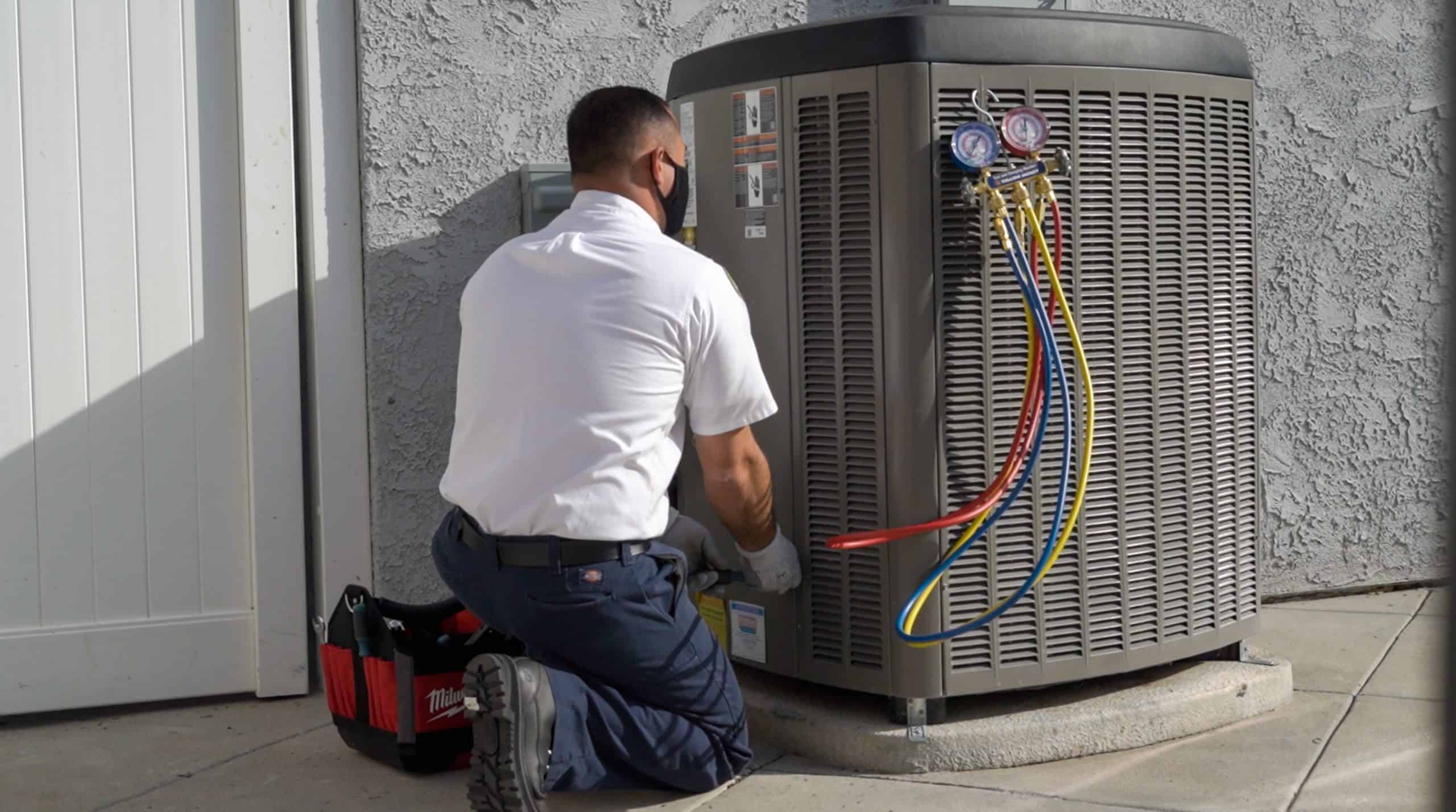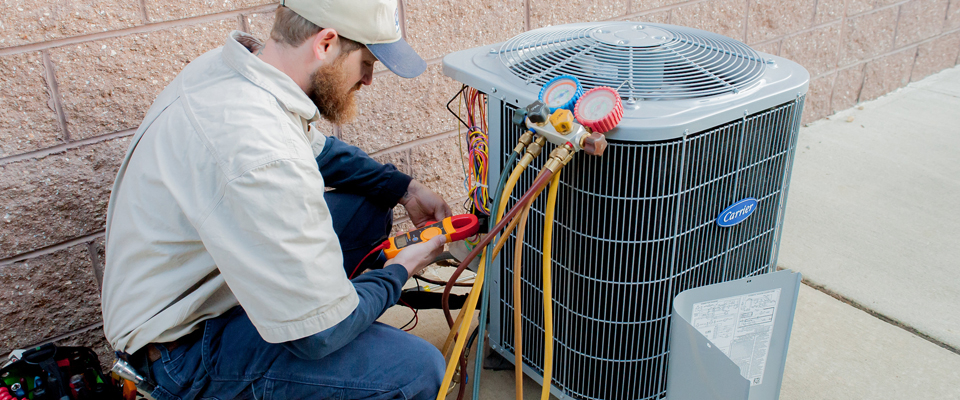Just How to Select the Right HVAC System for Your Requirements
Picking the ideal heating and cooling system is an essential choice that calls for mindful consideration of various aspects. Begin by examining your home's dimension, design, and special needs, as these components determine the essential capability and configuration of the system. In addition, establishing a budget plan that includes installment and long-term operational prices is essential. As you consider your choices, comprehending power performance ratings and the implications of your regional climate will certainly play a substantial role in your choice. However, the myriad of system types available can complicate this process, leading one to wonder which course eventually leads to ideal comfort and effectiveness.
Assess Your Home Size
Assessing your home dimension is an essential primary step in picking the suitable heating and cooling system. The size of your home straight influences the heating and cooling capability needed for efficient climate control. A cooling and heating system that is also little will certainly have a hard time to preserve comfy temperature levels, causing boosted energy consumption and use on the unit. Conversely, an oversized system can lead to brief cycling, inadequate moisture control, and ineffective operation.
To properly assess your home dimension, measure the square footage of each area, thinking about variables such as ceiling elevation and the design. Furthermore, consider the insulation quality and the variety of windows, as these components impact thermal efficiency. Homes with open layout might need various system configurations compared to those with several split areas.
Utilizing the Handbook J lots calculation technique can provide an extra precise quote of your HVAC requires. This approach accounts for different factors, including regional climate, solar gain, and occupancy patterns. By thoroughly assessing these facets, you can guarantee that your picked HVAC system is properly sized, causing boosted comfort, power performance, and long life of the devices.
Determine Your Budget
Identifying your spending plan is a critical action in the cooling and heating system selection process, as it establishes the criteria for your options - DMAKS HVAC. A HVAC system is a significant financial investment, and recognizing your financial limitations will certainly assist limit selections that fit within your methods
Begin by assessing not only the first purchase cost yet likewise installment prices, which can vary significantly depending upon the complexity of the task. Additionally, take into consideration recurring expenses such as upkeep, repair services, and power usage. A system might show up cost effective at first yet can result in greater costs gradually if it is less efficient.
It is a good idea to assign a contingency fund for unforeseen expenses that may arise during installation or preliminary system changes (DMAKS HVAC). Furthermore, discover financing alternatives or rebates that may be readily available, as these can reduce the problem of ahead of time prices
Ultimately, having a clear spending plan allows you to involve with cooling and heating specialists better, guaranteeing you receive customized guidance that lines up with your financial objectives and home demands. By being persistent regarding your budget plan, you can make enlightened choices that boost convenience without jeopardizing monetary security.
Evaluate Energy Efficiency
Energy effectiveness plays an important role in the overall efficiency and cost-effectiveness of your Heating and cooling system. Look for systems with a high Seasonal Energy Efficiency Ratio (SEER) for cooling and a high Yearly Fuel Application Effectiveness (AFUE) ranking for heating.
In addition, think about the Power Star certification, which indicates that the system fulfills strict efficiency guidelines established by the Environmental Security Firm. Spending in a Power Star-rated HVAC system can cause substantial savings in time, especially in areas with severe temperature level changes.
One more aspect to assess is the system's dimension and capacity. An oversized or small system can lead to inefficiency and boosted power expenses. DMAKS HVAC. Proper sizing, usually determined with a Hands-on J load estimation, makes sure that the system runs at optimum efficiency


Consider Climate and Environment
When selecting a HVAC system, it is vital to consider the neighborhood environment and ecological conditions, as these factors significantly influence the system's efficiency and performance. Different regions experience varying temperature extremes, moisture levels, and seasonal modifications, every one of which influence heating and cooling needs.

Additionally, neighborhood environmental aspects, such as air high quality and possible allergens, should educate your choice. Solutions furnished with advanced purification innovations can aid alleviate try this site toxins and provide cleaner air. Furthermore, take into consideration the power resources readily available in your area-- some a/c systems are more reliable when powered by natural gas or renewable resource resources.
Inevitably, straightening your cooling and heating system choice with your local climate and environmental factors to consider will certainly result in boosted convenience, enhanced effectiveness, and lower energy prices.
Explore System Types and Features
As home owners look for to optimize comfort and performance, checking out the numerous kinds of cooling and heating systems and their distinct features comes to be essential. The primary sorts of cooling and heating systems include central air, heat pumps, ductless mini-split systems, and heaters. Each system supplies distinct advantages tailored to different requirements and choices.
Air conditioning systems offer uniform air conditioning throughout a home, making them perfect for larger rooms. Heatpump function as both heating and cooling down solutions, utilizing power to move warmth, which can cause reduced power prices. Ductless mini-split systems are becoming increasingly prominent due to their adaptability and ease of installation, allowing property owners to manage the temperature in private spaces without substantial ductwork.

Conclusion
In verdict, selecting the ideal HVAC system necessitates careful consideration of numerous variables, consisting of home dimension, spending plan constraints, energy effectiveness, neighborhood climate, and offered system kinds. A comprehensive analysis of these aspects ensures optimum convenience and cost-effectiveness. By adhering to an organized approach, homeowners can make educated decisions that straighten with their certain requirements and choices, eventually resulting in boosted interior air high quality and energy financial savings.